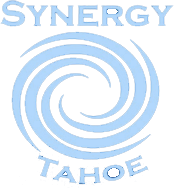Communication & the Three “R’s”
Respect, Responsibility and Reciprocity are the foundation of effective communication. We have all experienced poor communication, where the intent of the message sent does not match the message received. Using the Three R’s as a framework we will explore why effective communication is so universally challenging, including: verbal vs. non-verbal, personal communication styles, emotional intelligence, proximity, gender role issues, and feedback. Our progression will follow a “crawl, walk, run approach.” At course completion, students will have re-engineered their communications approach by becoming more aware of what works and what doesn’t work as well as how to “play to the audience” so that the message has the best possible chance of being clearly and accurately perceived.
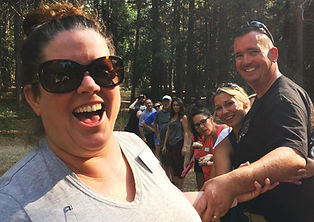
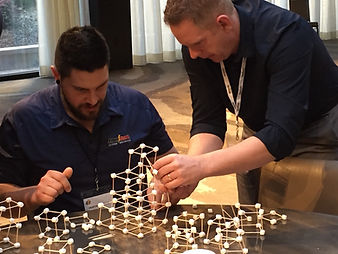
Meta-Mentoring: Creating a Mentoring Culture
Why take a course in mentoring? Three reasons: 1) Just because you have expertise doesn’t mean you are skilled at passing it on; 2) Building mentoring skills causes the mentor to learn more deeply, and; 3) Highly effective cultures embed mentoring as a way to spread knowledge and expertise across the organization. The Meta-Mentoring Course will explore the mentoring process in depth and in addition, will endeavor to instill a mentoring culture into the organization. Utilizing the basics of Relational Leadership, students in this course are exposed to and practice the Five Fundamental Principles of Meta-Mentoring:
- Mentoring is built on the foundation of a healthy trustful relationship;
- The Relationship must be imbued with genuine care about the results of the
mentoring process; - Communication in the relationship must be reciprocal and balanced;
- The Mentoring Process must be mutually guided by both parties, and;
- The Mentoring Process should be mutually agreed upon and punctuated with clearly defined goals.
Technical Teamwork: Transforming “Me” to “We”
You have the potential to help your team become infinitely more productive. In the Core Leadership series we introduced EQ (Emotional Quotient) otherwise known as Emotional Intelligence, this course takes a much deeper dive into the four fundamental tenets: 1) Self-awareness, 2) Self-management, 3) Social awareness, and 4) Managing Relationships.
We focus on EQ because it drives results. Using this EQ framework, we will emphasize it’s relationship to personal and organizational success. This course isn’t just for leaders; every team member has the power and the obligation to positively impact team performance. The foundation of developing and maintaining healthy and supportive relationships in a team environment will be explored in light of: 1) Underlying Assumptions; 2) ABCs and 3) Your Personal Leadership Style.
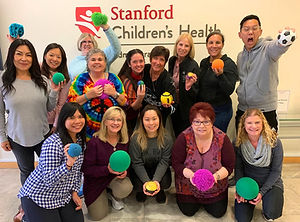
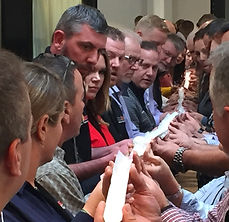
Managing Change
Why take this course? A significant change is happening; how you and your organization respond will determine success. This change can be self-initiated (e.g., changing your mission, expanding into a new product line, adding new services etc.) or it can be out of your control (e.g., responding to a new competitor; a merger with a new department/company; adopting new technology; a departmental or company reorganization; etc.)
Change happens and if it is unguided or poorly managed, unintended negative consequences are often the result. We introduce a structured approach that starts by understanding people’s proclivity and reactions to change. Building on an understanding of individual responses, we emphasize the need for a Strategic Transformation Plan aimed at creating critical mass that drives implementation and adoption of the desired change.
Culture: Developed and Deliberate…or Happenstance?
Every organization has a culture; we explore whether your culture helps or hinders your success. We start with our basic definition of “culture”: the norms of behavior within an organization. Those norms are largely the result of top-down decision-making: which behaviors are corrected, which are rewarded, and which are ignored. Prior to the course we will have surveyed each organization to better understand team member perceptions of the company culture, compared to the leader’s perceptions. Students walk away with a definitive action plan and a personal set of “work principles” to guide their day-to-day decision-making and interactions.

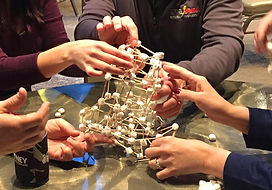
Evolutionary Improvement
Continuous improvement is a hallmark of every great organization. Our approach focuses on two areas: first; creating an environment where team member engagement and support is nurtured and reinforced, and: second, the design of a framework to organize and institutionalize continuous improvement.
Creating new ideas is not enough, one needs a repeatable process to encourage and select the best ideas, implement them effectively and test whether they achieve the desired outcome. We use an approach developed by Edward Deming that has proven over time to help organizations successfully embrace this evolutionary process. We will explore and practice Deming’s “Plan, Do, Check, Act” process through experimentation in a lab type setting.

